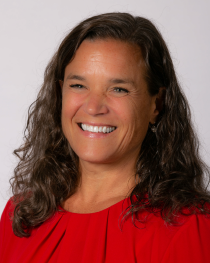Participatory budgeting is a strategy used by over 600 state and local governments* across the country to encourage community engagement by involving citizens directly in deciding how a portion of a public budget is allocated. In Rhode Island, community partnerships are a tool to empower communities to make budgeting decisions based on self-identified needs and are part of a broader suite of state investments (link downloads a PDF) to address health-related social needs and social drivers of health (SDOH), also known as social determinants of health, through midstream and upstream interventions.
What Is Participatory Budgeting?
Participatory budgeting allows community members to develop, vote on, and implement a public budget that includes prioritizing community needs. Used in Brazil since 1989, this strategy led to increased funding for health and sanitation initiatives which have been linked to reduced infant and child mortality rates.
In the United States, participatory budgeting can similarly be used to address health disparities by directly identifying community needs, increasing collaboration with community-based organizations (CBOs) around those needs, and promoting broader civic engagement, which is considered a key SDOH (e.g., in Healthy People 2030).
To support states as they develop and implement health equity initiatives, NASHP regularly convenes state health officials in an equity workgroup to discuss emerging opportunities, challenges, and strategies to address health disparities and SDOH. During this conversation, Rhode Island detailed the state’s participatory budgeting pilot as an example of how it is used to promote meaningful community engagement and empowerment.
Rhode Island’s Participatory Budgeting Pilot
A collaboration between the Executive Office of Health and Human Services and the Rhode Island Department of Health, Rhode Island’s participatory budgeting pilot builds on the structure of the state’s Health Equity Zones (HEZs), which were introduced in 2015 to address SDOH through community-based initiatives. HEZs assess community needs and develop a project plan that can be implemented with core funding from the state — up to $150,000 of braided state and federal public health funds.
Leveraging Health Equity Zone Infrastructure in Participatory Budgeting
Building on the HEZ model, the participatory budgeting pilot aims to provide direct decision-making power for communities and “creates intentional space at the table for those who experience systemic racism and income inequality.” This approach offers dual benefits of tying investments directly to community need and fosters and strengthens relationships between communities and the state. In addition, community project proposals and budget development can provide new opportunities for civic participation, especially for those unable to vote or who experience barriers to other forms of engagement.
In July 2022, it was announced that over the course of two years, the Pawtucket Central Falls (PCF) and Central Providence Opportunities (CPO) HEZs would each receive $450,000 in braided funding from the state’s Health System Transformation Project (link downloads a PDF) to implement this pilot. However, funds will be allocated differently for each HEZ.
PCF will receive $65,000 in the first year to launch this program and the remaining $385,000 in the following year to fund community projects. CPO will receive $550,000 in private funding for the first year of this project and the original allotment of $450,000 in the second year. CPO will use their own funds to manage the project.
Rhode Island also leveraged COVID-19 health disparities grant funding from the Centers for Disease Control and Prevention to develop and train staff on how to use a program website, Decide RI, as well as hire graduate research assistants from Brown University School of Public Health to support this project.
Understanding Project Development and Implementation
Participatory budgeting in the PCF HEZ and CPO HEZ follows a multi-step process:
- Steering committee planning: Community members develop rules and guidelines for participatory budgeting in participating HEZs.
- Idea collection: Community members have opportunities to submit ideas on how to improve health equity in their communities through in-person gatherings, drop-boxes at health clinics and CBOs, and virtually via DecideRI.org, the program website.
- Project delegates/change agents: Community members are compensated to meet weekly for three months to develop formal project proposals and associated budgets based on ideas collected from their community.
- Voting: Community members vote on prepared project proposals.
- Project implementation: Vendors are selected by HEZs after an application process to implement winning project proposals.
Idea collection occurred from September to December 2022. Community members from participating HEZs submitted over 500 project ideas pertaining to SDOH categories developed from the state’s health equity measures. Of these categories, education, social services, and food security received the most idea submissions in PCF while ideas centered around education, public safety, and natural environment prevailed in CPO.
Project delegates (CPO) and change agents (PCF) met from January to April 2023 to develop project proposals with subject matter experts based on submitted ideas. Along with overall efforts to ensure diverse representation among project delegates and change agents, recruitment featured targeted outreach to demographic groups that previously had not been able to participate in program planning efforts as well as to individuals who were unaffiliated with CBOs. This is to prevent a conflict of interest when choosing a CBO vendor to implement a selected project proposal. In each HEZ, community members ages 13 and older will have the opportunity to vote and select a project for implementation between April and June 2023.
For additional information on Rhode Island’s participatory budgeting process, including definitions of key terms and detailed program and participation guidelines, please see the respective rulebooks for the Central Providence Opportunities and Pawtuckett Central Falls HEZs or the program website, Decide RI.
Future Considerations for Participatory Budgeting
Participatory budgeting is a key facet of Rhode Island’s efforts to develop infrastructure (link downloads a PDF) to address health equity by collaborating with community partners to identify and strategically invest in community-specific health and health-related needs. Through this pilot, the state intends to build on civic engagement practices that are crucial to HEZs, improve trust between communities, health care, and government, promote more equitable government spending, and leverage community-led solutions to address SDOH.
NASHP will continue to monitor these efforts in addition to hosting regular convenings of state officials to discuss burgeoning health equity topics. Please contact Megan D’Alessandro with any questions or updates.
*The map available at this link is provided by the Participatory Budgeting Project.
Support for this work was provided by the Robert Wood Johnson Foundation. The views expressed here do not necessarily reflect the views of the foundation. Thank you to state officials from Rhode Island for providing detailed feedback on this blog and sharing information about the background and operations of participatory budgeting in the state.





